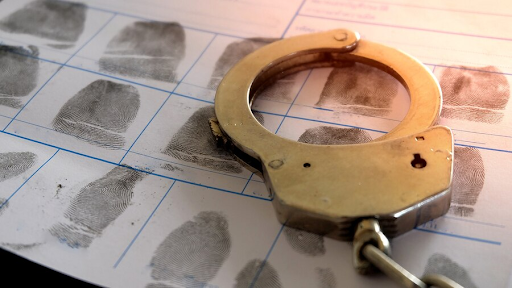Inaccurate Criminal Record Checks: Why You Can't Always Trust Them
In today's world, criminal record checks play a crucial role in various aspects of our lives. From employment screening and tenant selection to legal proceedings, these checks are used to assess an individual's background and trustworthiness. However, what happens when the information contained within these reports is inaccurate? The consequences of relying on faulty criminal record checks can be significant, impacting everything from job opportunities to housing applications. This article will delve into the potential pitfalls of inaccurate criminal record checks, explore the reasons behind these errors, and provide valuable insights on how to ensure the accuracy of such reports.
Understanding Criminal Record Checks
What Are Criminal Record Checks?
Criminal record checks, also known as background checks or criminal history reports, are verifications of an individual's criminal history. These checks typically search national and state databases for any arrests, convictions, or pending charges.
Common Uses of Criminal Record Checks
Criminal record checks are widely used across various sectors:
- Employment Screening: Many employers conduct background checks on potential hires to assess suitability for specific roles.
- Tenant Screening: Landlords often utilize these checks to evaluate prospective tenants before renting a property.
- Licensing and Permits: Certain professions and licenses may require a criminal record check as part of the application process.
- Legal Cases: Criminal record checks can play a role in court proceedings, child custody disputes, and other legal matters.
Causes of Inaccurate Criminal Record Checks
Unfortunately, criminal record checks are not infallible and can contain errors. Let's explore some common reasons for inaccuracies:
Data Entry Errors and Misidentification
Typos, mistaken names with similar spellings, or even social security number mix-ups during data entry can lead to inaccurate information being assigned to the wrong individual.
Outdated Information
Criminal record databases may not be updated promptly, meaning an individual's record might reflect old arrests or charges that have been dismissed or expunged.
Incomplete Records
Information from certain jurisdictions or court systems may not be included in a national database, leading to an incomplete picture of an individual's criminal history.
Consequences of Inaccurate Criminal Record Checks
Inaccuracies in criminal record checks can have far-reaching consequences:
Impact on Employment Opportunities
An
inaccurate record
can lead to job applications being rejected, even for positions where a criminal history might not be a disqualifying factor.
Effects on Housing Applications
Inaccurate reports can result in denial of rental applications or even discrimination based on false information.
Legal Implications
Errors in criminal record checks can lead to wrongful accusations or even legal consequences if not addressed promptly.
How to Ensure Accurate Criminal Record Checks
While the possibility of inaccuracies exists, proactive steps can help mitigate the
risks:
Verifying Information with Multiple Sources
Don't solely rely on a single report. Consider obtaining criminal record checks from different sources to cross-reference information.
Regular Updates and Corrections
Individuals can request updates and corrections to their criminal records if they discover inaccuracies. In Australia, each state and territory has its own procedures for requesting corrections.
Using Reputable Background Check Services
Partner with reputable background check companies that utilize reliable data sources and employ stringent verification processes. Consider
Peakpi Sydney– they offer comprehensive background checks with a commitment to accuracy and data security.
Conclusion
While criminal record checks are a valuable tool, understanding their limitations and potential for inaccuracies is crucial. By following the tips outlined above, you can take proactive steps to verify the accuracy of these reports and minimize the risk of negative consequences. Remember, accurate information is essential for fair and informed decision-making across various aspects of life.
FAQs About Inaccurate Criminal Record Checks
What causes inaccuracies in criminal record checks?
Data entry errors, outdated information, and incomplete records are some common reasons for inaccuracies.
How can inaccurate criminal record checks affect employment?
An inaccurate record can lead to job applications being rejected or even employment termination based on false information.
What steps can be taken to verify the accuracy of a criminal record check?
You can request reports from multiple sources, regularly review and update your records, and utilize reputable background check services.
Are there legal consequences for errors in criminal record checks?
In some cases, yes. Reporting agencies may be liable for damages caused by inaccurate information. It's important to consult with a lawyer if you believe you've been impacted by an inaccurate report.



